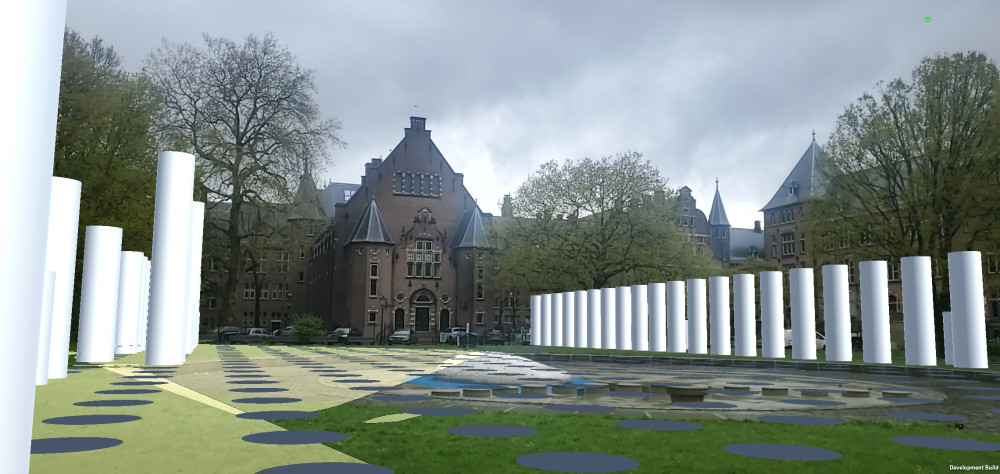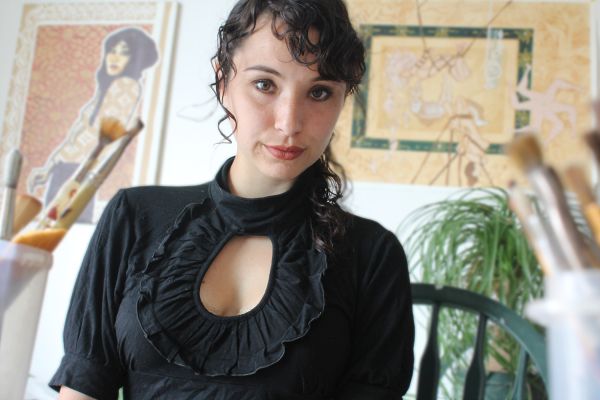
Using traditional media and open-source technology, Egyptian artist Pansee Atta grapples with the history and ethics of museum collections of human remains.
This site-specific performance at the Wereldmuseum Amsterdam links the history of the Oosterpark’s disinterred cemetery with the museum’s human remains, from both Amsterdam and colonial sites around the world. It visualizes the scope of the Wereldmuseum’s collection of human remains, as well the decontextualization resulting from its lack of documentation. Situating the viewer in a large-scale, virtual field of columns representing individual human “entities” in the collection, To make one partickle of the public soul of all things combines data visualization and rituals of memorialization to think through what ought to be revealed or concealed in public collections.
Taking its name from Thomas Browne’s 1658 rebuke of the trade in Egyptian mummies in response to his work in Dutch anatomical collections, To make one partickle […] draws a web of connections between the Netherlands and Global South through stories of the bodies that lie above and below the museum’s displays. It asks: what do the living owe the dead, and how are our collective autonomies entangled in this particular place? How do projects of ‘progress’ dehumanize European and non-European bodies alike, and how do we restore a portion of our shared dignities? How might we envision a future in which the dead and living are liberated alike; not as matter but as entities which defy containment?


